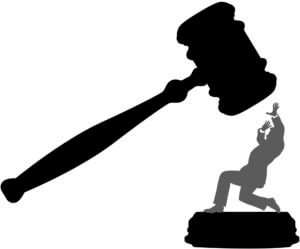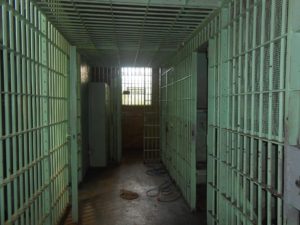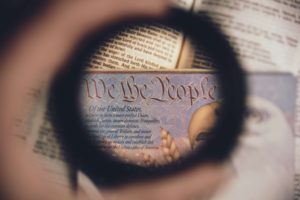Driving in California with a suspended or revoked license is prohibited under vehicle code 14601 . However, a key factor in determining a verdict revolves around the driver’s knowledge of the suspension or revocation.
California treats the crime of driving with a suspended or revoked license more severely than driving without a license. Driving without a license refers to individuals who have never had a license. The state considers driving with a suspended or revoked license to be more serious because the DMV suspended or revoked the individual’s driver’s license for a reason. Moreover, by driving anyway, the individual disregards the ruling of the DMV.
The State of California classifies driving with a suspended or revoked license to be a misdemeanor offense, and convictions can result in jail time as well as substantial fines.

To officially suspend or revoke a driver’s license, the State of California must send the message of suspension or revocation in one of three ways: by certified mail, by an officer serving the individual with a notice of suspension or revocation, or by a judge (in court) recommending a license suspension or revocation. If the state sent the message in one of these ways, the state will then presume that the individual knew of the suspension or revocation.
People accused of driving with a suspended or revoked license have a constitutional right to defend themselves in court. An effective defense attorney acts as a resource that can reduce the great imbalance of power between the American government and the American citizens. A skilled defense attorney challenges the state to be fairer, more accurate, and more just by diligently researching and investigating the situation in question.
Defining Driving with a Suspended or Revoked License in California
California state prosecutors must prove specific elements of the crime in order to convict someone of driving with a suspended or revoked license.
The elements include:
- The defendant drove a motor vehicle while his or her California driver’s license was suspended or revoked
- The defendant knew that his or her driving privileges had been suspended or revoked at the time
Element One
The first element concerns only a simple fact: either the individual in question was driving, or was not driving, at the time of the arrest. The officer’s testimony, together with other evidence, determines this element.
Element Two
The second element concerns knowledge of the suspension or revocation.
In order to presume that an individual had knowledge of the suspension or revocation, one of three things must have happened.
- A certified mail carrier had delivered a letter of revocation or suspension from the DMV to the driver.
- A police officer had served a notice of suspension or revocation to the driver at the time of arrest
- A judge had informed the driver of a suspension or revocation during sentencing for a prior crime
Even if one of these three things did occur, it only creates a presumption of knowledge. It does not prove that the individual had knowledge of the suspension or revocation. In a jury trial, the prosecution will typically create a presumption, leading the jury to conclude that the driver had knowledge of the suspension or revocation.
A skilled criminal defense attorney will build a case that challenges this presumption of guilt.
Suspension or Revocation by Letter
The law presumes the individual received a letter if the prosecution can prove three things.
- The California DMV mailed the individual a notice of revocation or suspension
- A mail carrier delivered the notice to the individual’s most recently reported address
- The mail carrier did not return the DMV notice as undeliverable or unclaimed.
Example
Stanley suffers a traumatic brain injury, leaving him with severely limited cognitive abilities. For his safety and the safety of others, his family and doctor contact the DMV to revoke Stanley’s driving privileges.
Since the accident, Stanley has moved into an assisted living facility. The DMV sends the notice of revocation to his former address. The U.S. Postal Service returns the letter to the DMV as undeliverable.
In this case, if a police officer pulled Stanley over, he could not be arrested for driving with a revoked license. The DMV notice never reached Stanley. Therefore, the court may not presume that he had knowledge of the license revocation.
Suspension or Revocation by Verbal Order
The law may also presume that a driver knew of his or her license suspension or revocation if he or she received a verbal notice:
- A police officer may personally serve a notice of suspension or revocation at the time of arrest
- A judge may inform the driver of a suspension or revocation at a sentencing hearing for a prior violation that resulted in the suspension or revocation of the driver’s license.
Example
Again using Stanley as our example, things could be very different with just a few changes in circumstances.
After Stanley moves into the assisted living facility, new tenants began to rent his house.
When the DMV revocation letter arrives in the mail, the new tenants throw it out, and the US Postal Service never returns the letter as undeliverable. This scenario creates a presumption of guilt even though Stanley never received the letter.
The presumption does not indicate Stanley’s guilt under Vehicle Code 14601. Stanley’s criminal defense attorney can point out that he had moved, and therefore never received the letter of revocation.
California Laws Regarding Driving With a Suspended or Revoked License
California State Vehicle Code 14601 can only be used to suspend or revoke an individual’s driver’s license if the suspension or revocation is valid. Valid driver’s license suspensions and revocations are covered in a variety of sections of the code.
The State of California may suspend or revoke driving privileges under Vehicle Code 14601 for specific offenses, general offenses, DUI, habitual traffic offenses, or chemical test refusal and other DUI related offenses.
Vehicle Code 14601
Specific offenses leading to license suspension or revocation include:
- Reckless driving
- Alcohol or drug abuse
- Physical or mental limitations inhibiting safe driving
- Being declared a negligent or incompetent operator.
Vehicle Code 14601.1
General offenses may also lead to a license suspension or revocation under Vehicle Code 14601.1. This section serves as a catch-all for prohibiting individuals from driving with a suspended or revoked license for any reason.
Vehicle Code 14601.2
In California, a serious consequence of a DUI conviction is the suspension or revocation of an individual’s driver’s license. Vehicle code 14601.2 punishes individuals for driving with the knowledge that his or her license has been suspended or revoked due to a DUI conviction. In California, DUI includes DUI resulting from drug use as well as DUI resulting in injury to another person. Vehicle Code 14601.2 lists all of these types of DUIs, and provides the foundation for charging an individual for driving with a suspended or revoked license due to a DUI conviction.
Vehicle Code 14601.3
Habitual traffic offenders may have their driver’s licenses suspended or revoked. Vehicle Code 14601.3 prohibits habitual traffic offenders from accumulating a history of driving problems while their driving privileges are suspended or revoked. Vehicle Code 14601.3 states that a driver becomes a habitual traffic offender under the following circumstance:
During a 12-month period, the driver is convicted of any combination of the offenses listed below, with the resulting suspension or revocation of his or her driver’s license.
- Two or more serious driving-related crimes, such as reckless driving or exhibition of speed
- Three or more general moving violations, such as speeding
- Three or more accidents causing injury or property damage totaling at least $750.
Vehicle Code 14601.5
Chemical test refusal in other DUI offenses may result in a driver’s license being suspended or revoked. Vehicle Code 14601.5 prohibits drivers from knowingly driving with a license suspended or revoked due to the following:
- Chemical test refusal
- California DUI under 21
- Refusing a preliminary alcohol screening after being suspected of driving under the influence while on probation for DUI
- Driving with a blood-alcohol content of 0.01 percent or greater while on probation for California DUI
- Driving with a 0.04% blood alcohol content or greater if the driver holds a commercial driver’s license
Penalties for Driving with a Suspended or Revoked License
The State of California classifies driving with a suspended or revoked license as a misdemeanor offense. Potential penalties include fines and county jail time. However, the specific state-sanctioned punishment is determined by the following: the reason for a driver’s license suspension or revocation, any prior convictions relating to license suspension or revocation, and the individual’s driving history.
First-time offenders face various penalties depending on the specific violation.
| Vehicle Code
14601 |
License revoked or suspended for specific offenses, including reckless driving, alcohol or drug addiction, negligent operator, physical or mental condition | 5 days to 6 months in county jail | Fines from $300 to $1000 |
| Vehicle Code
14601.1 |
License revoked or suspended for general reasons which are not listed in other statutes | Up to 6 months in county jail, no minimum | Fines from $300 to $1000 |
| Vehicle Code
14601.2 |
License revoked or suspended for DUI | 10 days to 6 months in county jail | Fines from $300 to $1000 |
| Vehicle Code
14601.3 |
Habitual traffic offenders while license suspended or revoked | 30 days in county jail | Fines up to $1000 |
| Vehicle Code
14601.5 |
License revoked or suspended for chemical test refusals and DUI-related offenses | Up to 6 months in county jail, no minimum | Fines from $300 to $1000 |
Driver’s License Reinstatement
Driver’s license suspensions expire. However, drivers still need to act in order to reinstate their driving privileges.
The California DMV explains that in order to reinstate driving privileges, an individual must visit a California DMV office in person with the required documentation. He or she must then pay the fines to the State of California. The driver must also prove that he or she completed all probation requirements.
Understanding Driving with a Suspended or Revoked License in California
California Vehicle Code 14601 prohibits individuals from knowingly driving with a suspended or revoked license.
The law contains various sections, and punishes convicted drivers differently depending on the specific section that he or she violated.
California law classifies driving with a suspended or revoked license as a misdemeanor crime.
In order to convict an individual of driving with a suspended or revoked license, the prosecution must prove two elements of the crime.
- The individual was driving the vehicle
- He or she understood that his or her license was suspended or revoked
The driver’s knowledge is an integral part of the crime. Moreover, if the driver did not know of the suspension or revocation, then he or she cannot be proven guilty of driving with a suspended or revoked license.
A skilled criminal defense attorney can help the individual stand up against the court system. Defense lawyers hold the court accountable by representing people accused of crimes. Furthermore, without experienced legal counsel, it is almost impossible to obtain a positive outcome in a driving with a suspended or revoked license case.
However, most people do not have the time, energy, or resources available to research and investigate the situation with enough specificity to build a successful defense.







